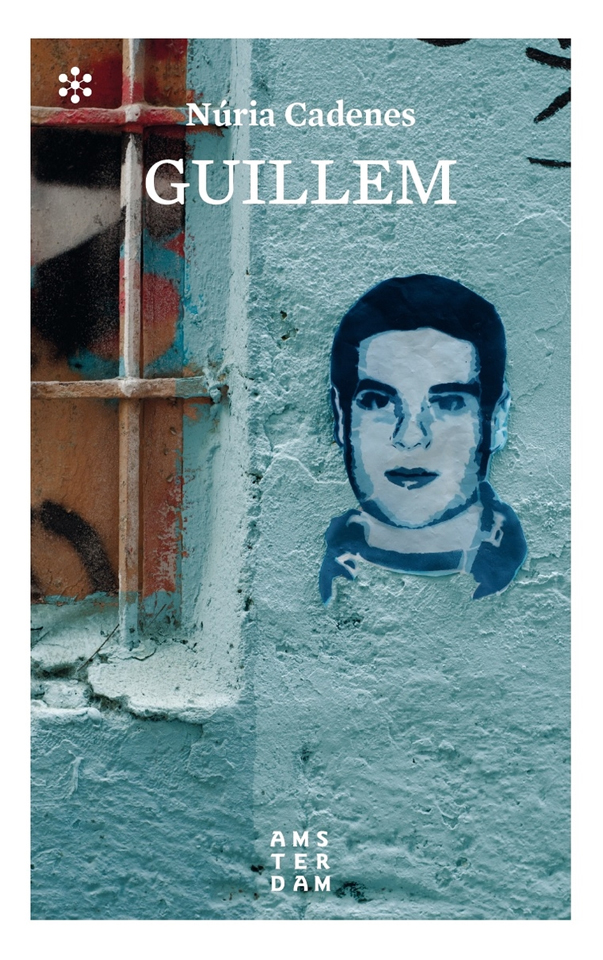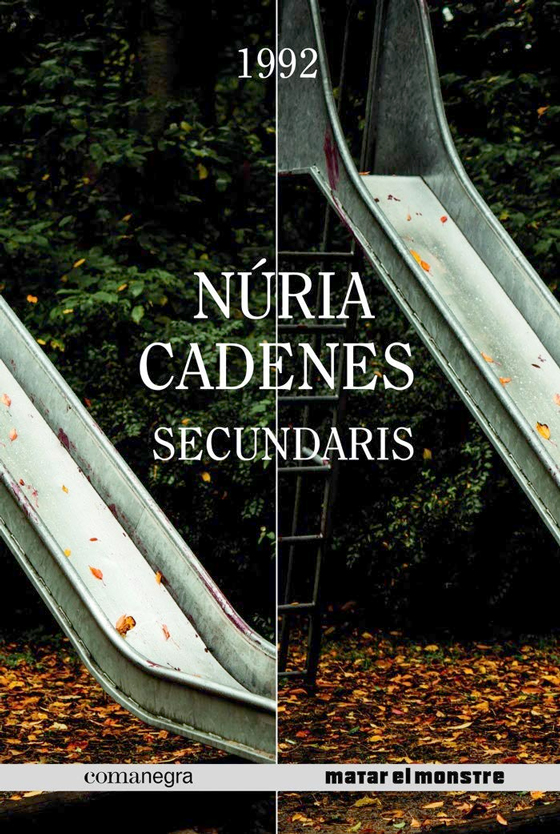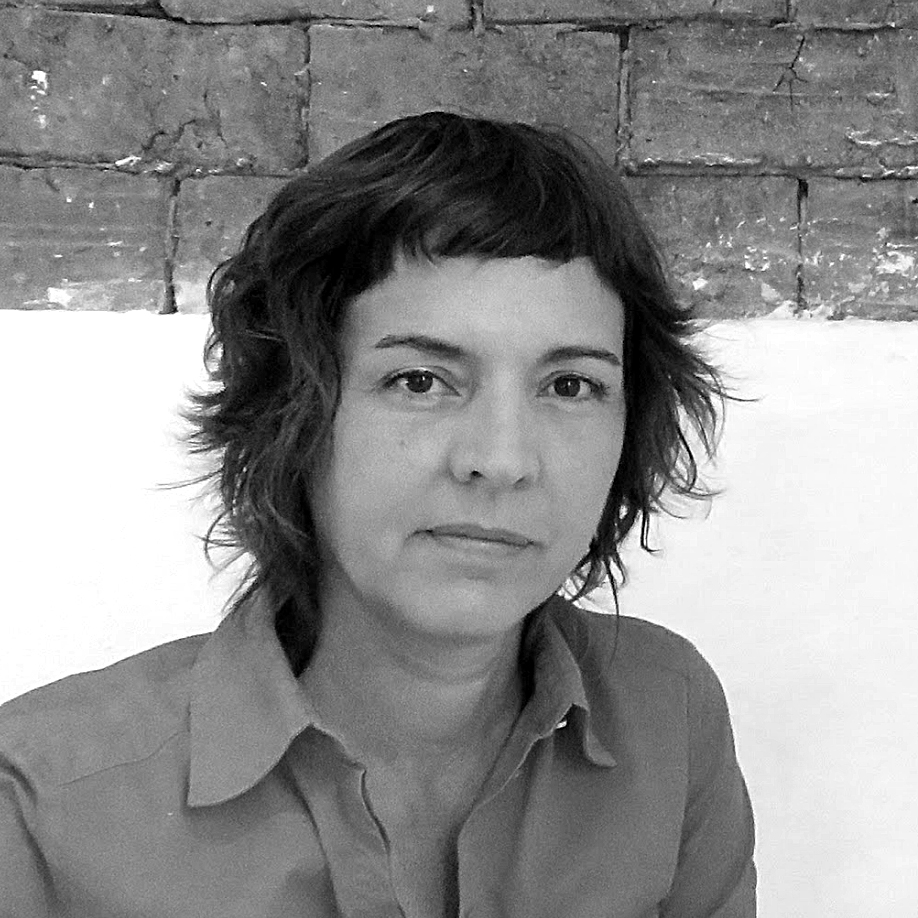Tomorrow
- The Story
- Jan 22
- 7 mins

They had the flat right above the grocery shop. The flat, which is one way of describing it: disarray turned into a dining room, a tiny kitchen, an even teensier bathroom and two bedrooms that were hidden behind a small banister that the father had been hell bent on putting up, because he said that this created an ambiance, the feeling of a labyrinth and a space that goes goodness knows where.
When Daniel was little, his father besieged him with questions that he could never answer: “Where are these steps going?”, he probed him, for example, for no reason at all and pointing to the banister. Or, worse still, “Where do you want them to go?” And the pale brat that he was then stood motionless like a wax statue, frozen to the spot and with his lungs squeezed until his father let him get past because the kid had neither imagination nor anything.
Not a thing.
Being an only child is no big deal when all the eagerness and hopes of the parents stare at you all the time and from every angle. It was a sentence for Daniel. Or maybe he relied heavily on it. A resignation, a sigh of that’s the way the cookie crumbles, an excuse. A vein of rage that bubbles away when it still doesn’t have a name and that one day, gulp, has gobbled you up.
Being an only child is no big deal when all the eagerness and hopes of the parents stare at you all the time and from every angles.
His mother had come down from the Pyrenees to work at the inn of some distant relatives. To work like a slave, she would clarify immediately if the topic came up. She showed her hands all cracked from the ash and the bleach and said that she still had stiffness in her knees and never again. The father was from Barcelona. Not much of a story: a school he remembered too lovingly, the smell of sweat and the cries of a child in the neighbours’ basement while, outside, the bitter sound of sirens were very close, an uncle who disappeared in exile, the little grocery shop at home and yet we were lucky. When he returned from the military, he went down to the market on Thursdays and had lunch at the inn. And there they fell in love, more or less. A brief courtship, a wedding, a trip to Montserrat, counting the pennies they had between them, a son, counting the pennies again, the mother’s health and there would be no more kids.
Or money.
No expansion was ever allowed. It wasn’t in the heart’s desire. Perhaps it had been moulded to the size of the space they had, in its muted tone, painted in shades of ochre, grey and brown. They made a yellowish life for themselves, which in the shop seemed that it could be lifted with the reds and golds that made the labels of detergents stand out, concoctions to make metal or furniture shiny, Lithinés du Docteur Gustin medicinal water additive, Floïd shaving products and paints, and toilet paper and DDT. In the shop it half seemed like that, but little else. Bulrush chairs because if you sit down the hurry goes off you and it might seem that the soap that they’re now selling so well packaged will sort of perfume your life. A housecoat and an apron. The hours that add up and gradually fade.
Despite everything, he sometimes still had pipe dreams and read Chekhov and felt that the banister in his flat could be the way to some kind of deserved happiness, interesting people, discoveries and music, the desired and unattainable Moscow of little Irina in The Three Sisters. The wife always had her feet on the ground and repeated that what you see is what you get, that stairs are stairs and that it’s all over bar the shouting and stuff like that. But they understood one another. And they were getting by. They agreed on a kind of eager resignation: that the world is what it is but that hard work must be put before play and hardships can be put aside till the next day.
This was the key notion.
On the television there are three people sitting on a sofa. The father nods, but she doesn’t. She is thinking about how long it has been since she has seen her son, her Daniel.
On the television there are three people sitting on a sofa. The father nods, but she doesn’t. She is thinking about how long it has been since she has seen her son, her Daniel, and with all the money the ones on TV must have, how come there’s not even a meagre armchair for that boy who now tells us they play because they like playing, full stop, why does he have to be squashed between the two good-looking presenters who don’t seem to get along that well but carry on smiling and squashing the guests, all three on the sofa draped with a black cloth full of creases and the presenters side by side with no room for the Holy Ghost.
She feels dizzy. Perhaps she ate too much supper. A drop in blood pressure. These things happen. Legs as limp as a rag doll’s. She pushes the blanket over a bit to cover the father, who fidgets and murmurs mmmmhhhrrr. On TV a girl painted like a door sings that I am the earth and he is the sky. And the mother sways along to the melody as if on a boat and closes her eyes half stuffed and tells herself that when summer comes she’ll do it, that is, get on one of those glass boats where you can see the sea from the inside.
In Palamós, she mumbles, as if it were a promise from goodness knows where, in Palamós.
Her head gets hazy. A strong pain in her temple. Luckily, at least the old heater still works. Butane gas. Remember to buy some, she tells herself, practical, and then we could go down to the pleasure boats, all ready, to get some fresh air: I have wanted to go on a boat ride for so long! Yes, tomorrow we could go down there.
Dense, opaque, the drowsiness is overcoming her.
Or some Sunday, when Daniel comes and treats us to lunch in the Barceloneta and says to us, see how I did it, see? Pleasure boats and prawns. We see it, son.
Or tomorrow, anyway, just in case. Tomorrow, even if it’s Monday.
But we’re so content at home. We’re content and I’m falling asleep and dreaming of pleasure boats and seagulls tomorrow and in a few days the neighbours will wonder how can it be and they will find us as we are now, curled up and seized up on the sofa with the TV on and the heater with nothing else to burn.
 © Sandra Rilova
© Sandra Rilova“How much?”
“That much.”
“Less.”
“That much.”
“Bah.”
“Yes or no?”
“What do you take me for?” And he leaves.
Daniel knows rightly what this guy’s situation is, the debts, the coke. And that he needs to sell at all costs. And that he’ll eventually give in. It’s his specialty: spotting drifting boats, circling overhead, knowing when to go from circles to spirals, and lunging at the victim when they have no other choice. The house is worth nothing, but it’s well located: this is how business is done, ladies and gentlemen, that’s how business is done, he says to himself, and he greets the audience and the theatre applauds him and a shower of streamers and confetti falls from the ceiling.
Life tends to have less lustre for him than the scenes he imagines in his mind and that he never lets out, but that suits him fine. Adrenaline and money and how long ago did you leave the bloody neighbourhood behind, Daniel?
Many years ago.
Flying above the small windowless apartment, the unceremoniously raised blocks, with treeless squares.
You should call your parents.
Yes. Tomorrow.
A hint of remorse, half regret.
Tomorrow without fail.
Recommended publications
 Guillem Amsterdam Llibres, 2020
Guillem Amsterdam Llibres, 2020  Secundaris Comanegra, 2018
Secundaris Comanegra, 2018
The newsletter
Subscribe to our newsletter to keep up to date with Barcelona Metròpolis' new developments




